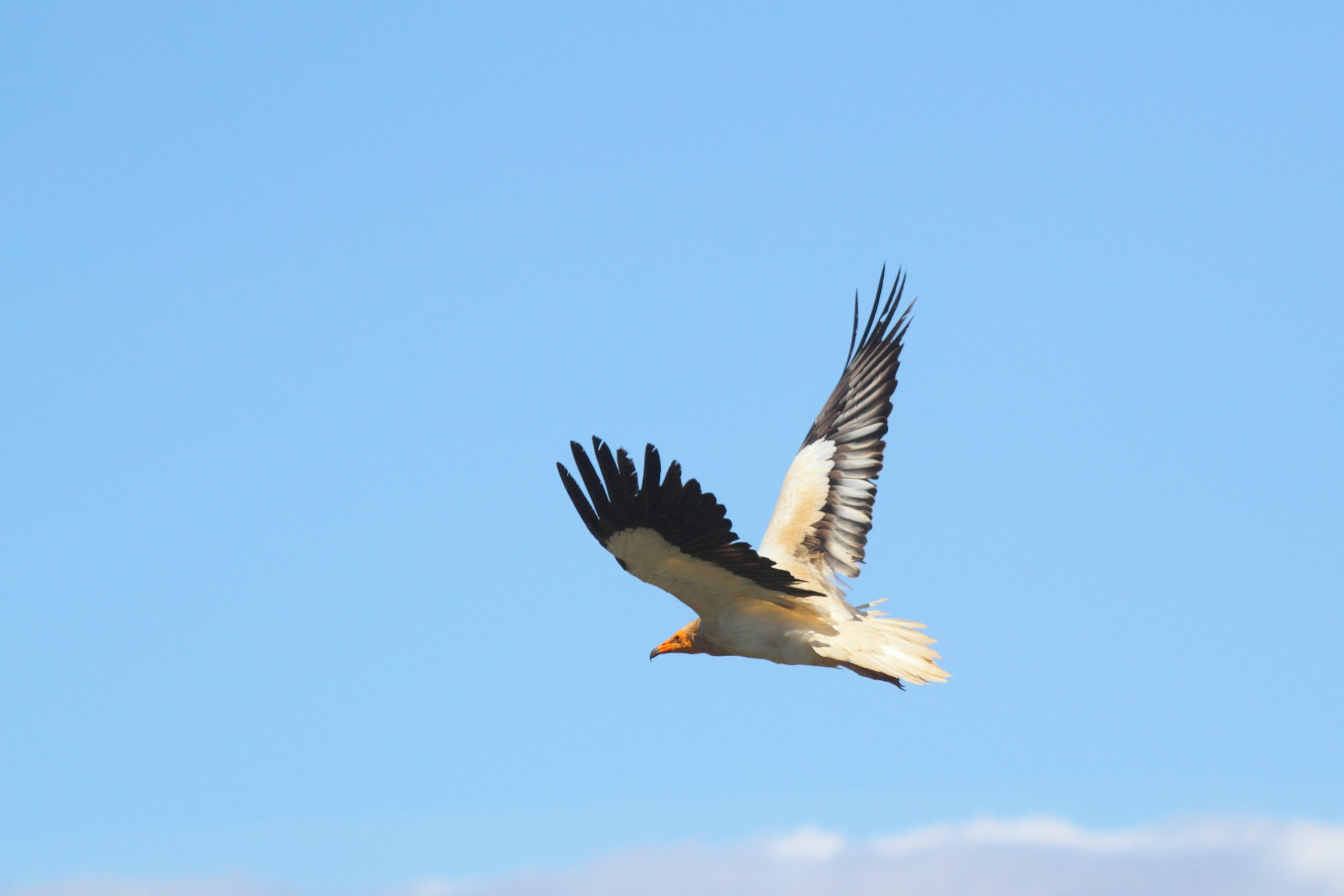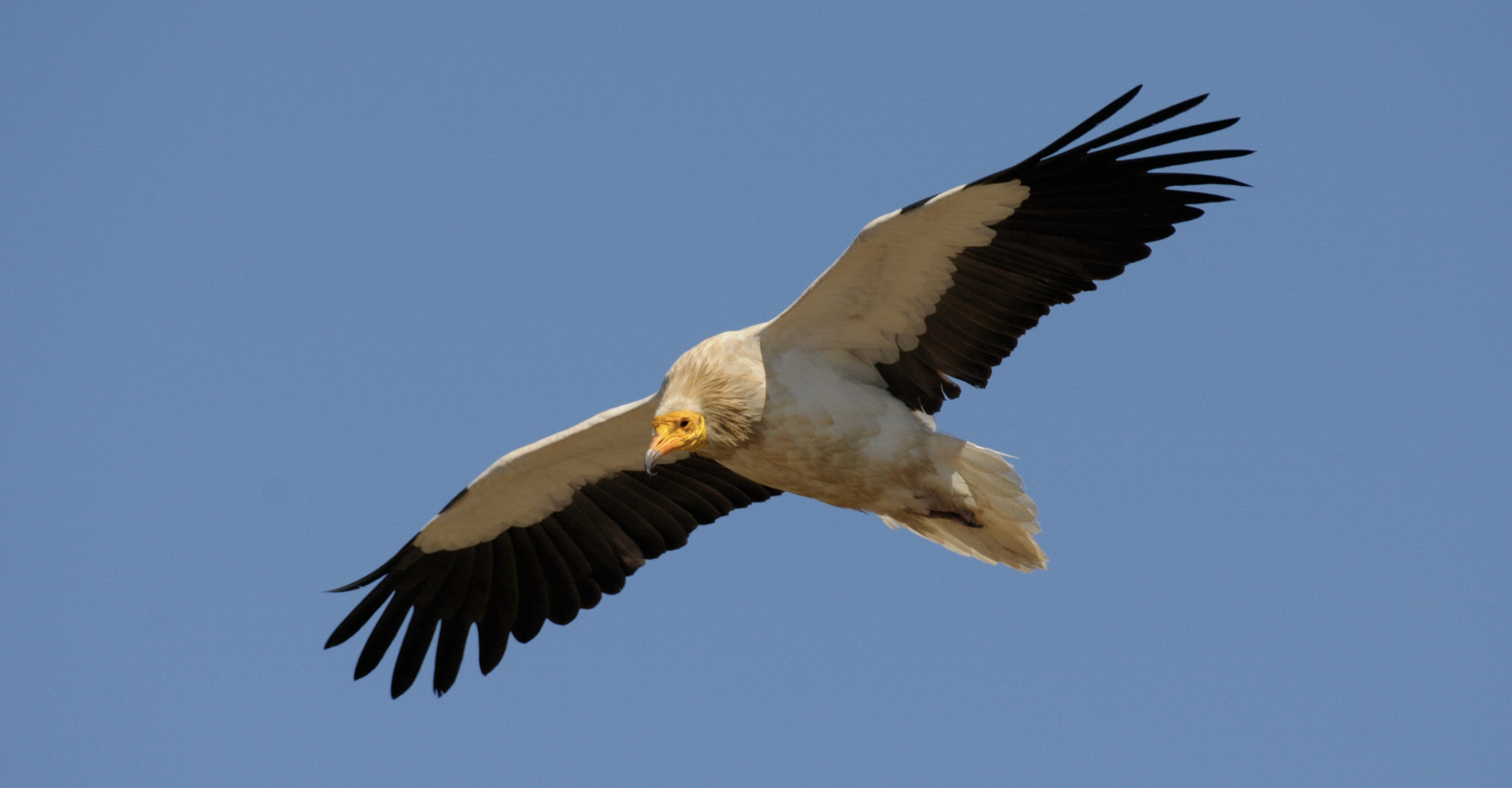
A 2018 census of Egyptian vultures led by Protection and Preservation of Natural Environment in Albania and Hellenic Ornithology Society, BirdLife in Greece reveals a new territory occupied by the species but a slight decrease in the number of these critically endangered vultures in Albania.
Egyptian vultures in the Balkans

The majority of Europe’s Egyptian vultures are found on the Iberian Peninsula, which remains a stable population, however, the population of these birds on the Balkan Peninsula continues to decrease after declining by 50 percent in the last 40 years. Across the Balkan Peninsula there are around 60-80 breeding pairs mostly found in Bulgaria and Greece.
Annual census in Albania
Since 2012, the breeding territories in Albania, mostly in southern Albania and the Drino Valley, have been annually monitored to evaluate the population trend and investigate the threats for the species.
In 2018, PPNEA and HOS / BirdLife Greece recorded nine active breeding territories in Southern Albania, five of which occupied by pairs and four by single individuals, giving a total of 14 individuals. A new territory, never been reported before, with a single individual and old nest was found.
Compared to 2017, the population has decreased with one individual but the number of occupied territories has not changed. Overall, the population of the Egyptian vulture in Albania has remained more or less stable in the last 5 years. This survey was carried out within the framework of the Egyptian Vulture New LIFE vulture conservation project and supported by the Bulgarian Society for the Protection of Birds and the ACE Foundation.
Agrochemicals threat to Egyptian vulture
The Egyptian vulture has an extremely diverse diet, unlike the other larger European vultures, the Egyptian vulture will feed on small sized prey and even insects. The small population of the species is threatened by habitat loss as a result of increasing intensification of agriculture. However, with the change in agriculture practices another threat is emerging, the use of agrochemicals based on a study carried out by PPNEA investigating their use in some of the occupied territories.

Across southern Albania, 37 farmers were interviewed about their use of agrochemicals. The Drino Valley in southern Albania, bordering Greece, is the most important area for the Egyptian vulture in Albania and is well cultivated with a mix of corn, oat, wheat crops and vineyards. Whilst over half of the farmers cultivating crops are not using agrochemicals, over 80 percent of the vineyard farmers are using pesticides, fungicides and herbicides. Even though this is a relatively small area famers have reported finding dead animals including birds, foxes and sheep.
This is very worrying trend and poses a risk to the small population of this critically endangered vulture.
Balkans Anti-Poisoning Project

The use of agrochemicals in agricultures is perfectly legal, however, the illegal use of agrochemical to kill wildlife including vultures is the single biggest threat to vultures in the Balkans.
The Balkan Anti-Poisoning Project is a cross-border initiative bringing together wildlife conservation organisations, governmental agencies and other stakeholder such as; hunting associations, farmers and scientists, in five Balkan countries to tackle illegal wildlife poisoning.
We would strongly urge any farmers who find dead animals as a result of accidental poisoning from agrochemicals to swiftly remove the remains to prevent the chemicals entering the foodchain.




